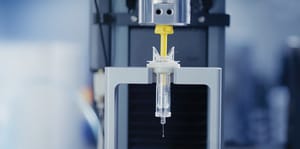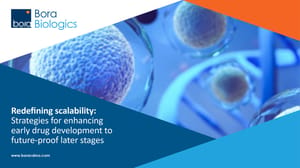The plant located in Singapore’s Tuas Biomedical Park already manufactures small molecules and biologics. However, the $223 million investment will add 24,000 L of biologic drug-substance capacity to aid its current portfolio and emerging immunology and oncology pipeline.
"This expansion announcement represents one of AbbVie's many investments in its Singapore-based operations and the proud continuation of our decade-long partnership with the Government of Singapore," said Azita Saleki-Gerhardt, chief operations officer at AbbVie.
"The expansion of our Singapore site will strengthen our global manufacturing capabilities, support our growing biologics pipeline and help AbbVie continue delivering on our patient commitments now and in the future."
The firm said construction will start “immediately” and the plant is expected to be operational by 2026. Furthermore, the expansion will create over 100 jobs. In turn, AbbVie’s only manufacturing facility in Asia will employ more than 500 people in supply chain, engineering, administration roles, quality assurance, and manufacturing.
With the latest investment, AbbVie says it has pledged more than $740 million in purchasing, developing, and expand its Singapore plant over the past 10 years.
“We are delighted that AbbVie has chosen to expand its biologics capacity in Singapore for current and future innovative medicines. […] AbbVie’s investment will enhance Singapore’s leading advanced manufacturing ecosystem and create exciting job opportunities here,” said Cindy Koh, executive vice president, Singapore Economic Development Board.
Scale-ups in Singapore
Singapore has long been a hub for biomanufacturing, but the Garden City has seen a slew of investments in recent years.
In July 2022, contract development manufacturing organization (CDMO) WuXi Biologics invested $1.4 billion as part of a 10-year plan to expand the company’s manufacturing capabilities in Singapore through the construction of a CDMO center. Additionally, in November 2023 WuXi XDC raised $520 million in IPO and said it intends to use the proceeds to build facilities in Singapore and China.
Swiss CDMO Lonza also upped its mammalian cell services in Singapore to aid both upstream and downstream processing and analytical development.
Thermo Fisher Scientific opened its Singapore drug product plant in May 2023 to advance research, development, and production of medicines and vaccines.
In December 2022, Sanofi, Takeda and GlaxoSmithKline (GSK) partnered with research organizations from the Agency for Science, Technology and Research (A*STAR), Nanyang Technological University, Singapore (NTU), National University of Singapore (NUS), and Singapore Institute of Technology (SIT) to bolster the country’s biologics manufacturing capabilities.
The partnership has been formalized through the Biologics Pharma Innovation Program Singapore (BioPIPS) and receives support from the Singapore Economic Development Board (EDB).
A month before this partnership, RVAC Medicines and A*STAR agreed to develop solutions to construct messenger RNA (mRNA) manufacturing and analytics capabilities in Singapore. In May 2021, BioNTech said it was aiming to bring mRNA manufacturing to Asia by building a facility in Singapore. 18 months on, the firm entered into an agreement to acquire a Novartis small molecule plant in Singapore and transform it into the country’s first mRNA production facility.






